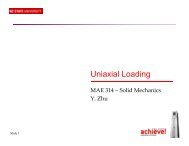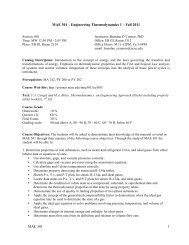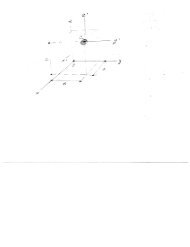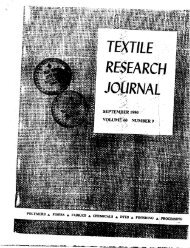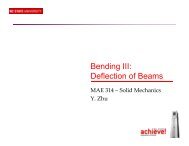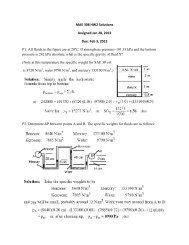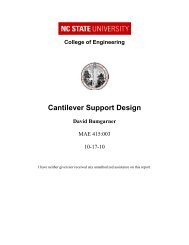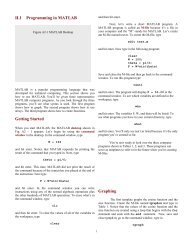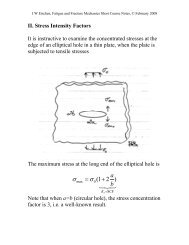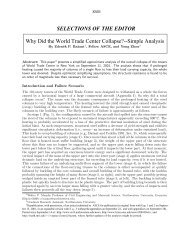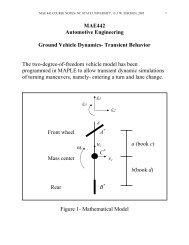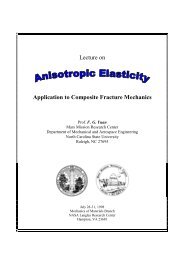The Online Ethics Center for Engineering & Science - Department of ...
The Online Ethics Center for Engineering & Science - Department of ...
The Online Ethics Center for Engineering & Science - Department of ...
You also want an ePaper? Increase the reach of your titles
YUMPU automatically turns print PDFs into web optimized ePapers that Google loves.
Undergraduate Education in Practical <strong>Ethics</strong>●●●not cause unnecessary harm (e.g., destroy a person's reputation)Recognize explanations other than the one that appears most likelyFashion responses that will be robust in the sense that they will bewise, even if the situation turns out to be other than the one thatseemed most plausibleRecognize when the moral territory is unfamiliar and locate goodadvice about how to proceed and the likely effects <strong>of</strong> doing soFor more detailed in<strong>for</strong>mation on active learning methods that teacha full range <strong>of</strong> skills <strong>for</strong> moral problem solving, see "Moral Agents andMoral Problems ". (That this essay was selected <strong>for</strong> reprinting by theNational Student Pugwash, shows student enthusiasm <strong>for</strong> these methods.)Active learning materials are featured in the <strong>Online</strong> <strong>Ethics</strong> <strong>Center</strong>( OEC). Active learning methods were featured in pedagogicalpresentations in the March 1999 International Conference on <strong>Ethics</strong> in<strong>Engineering</strong> and Computer <strong>Science</strong> held at Case. <strong>The</strong> conference papersdescribing these methods are available in the OEC.Other valuable methods are already used in those disciplines in thehumanities and social science that regularly include ethics in their subjectmatter. <strong>Ethics</strong> has sometimes been well incorporated into capstonecourses in engineering design. <strong>The</strong> present proposal is not meant todisplace either such existing disciplinary courses that treat ethics indepth, or ethics education that already incorporated into engineeringcourses.A. Freshman Orientation:As <strong>of</strong> Fall 2000 the first day <strong>of</strong> Freshman Orientation at Case featuredskits depicting predicaments <strong>of</strong> college life with President Auston inattendance. <strong>The</strong>se challenge students to think through their actions in arange <strong>of</strong> situations, from responding to a student who has passed out afterdrinking, to deciding what kinds <strong>of</strong> help they may use in doing theirassignments. <strong>The</strong> conversation about the moral responsibilities in anacademic community and academic honesty as a value central to thepractices <strong>of</strong> acquiring, augmenting, and transmitting knowledge beganhere, as it should, at the beginning <strong>of</strong> orientation. <strong>The</strong> uni<strong>for</strong>mity <strong>of</strong> theexpectation on students and faculty alike to fully acknowledging allsources and aids used in one's work began at this point.B. 100-Level Courses, Especially First-SemesterFreshman ClassesOrientation to the university as a center <strong>of</strong> learning and research, andintroduction to the practices that define a research university and thecentrality <strong>of</strong> academic integrity to those practices should continue in 100-level courses. In these courses, upper-class students as well as first-yearstudents are introduced to disciplines. <strong>The</strong>y need to learn not only themethods <strong>of</strong> creation and discovery used in those disciplines, but also thestandards <strong>for</strong> evaluating and crediting contributions made in the givenhttp://onlineethics.org/edu/cwethed.html (2 <strong>of</strong> 8)10/25/2005 9:06:13 AM




